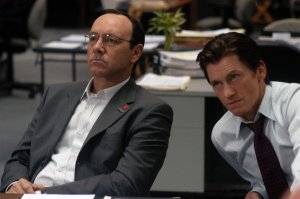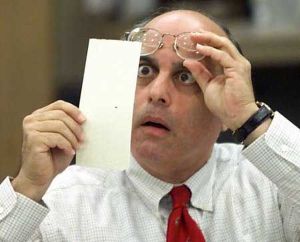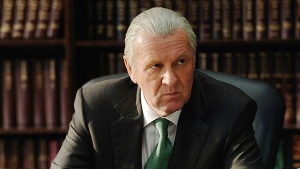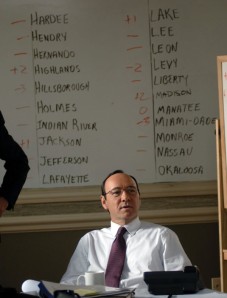Originally Posted July 12th, 2012 at Playeraffinity.com
I can pretty much guarantee that right now, as you're reading this, two people are arguing over who's better: Spider-Man or Batman. Comparisons are a fun outlet for expressing our appreciation for pop culture, but the answer is always personal, not scientific. After all, one character is a Marvel comics property and the other is THE GODDAMN BATMAN.
The movie-based version of "who's the best" is heating up, with Spider-Man getting a new movie last weekend, and Batman wrapping up his trilogy of films in just a few days. While most comic book fans are still holding their breath for the dark knight's swan song, The Amazing Spider-Man is a perfectly fine reboot of the "Spider-Man" fiction, but that's because it's basically the exact same movie as Batman Begins, give or take a hyphen. The number of plot points and means of re-establishing the fiction that Spidey borrows from Batman's reboot is astounding, and if you don't believe me, check just a few of these uncanny instances of overlap between the two franchises.
And yes, here be spoilers.

Pair An Up and Coming Lead From Overseas With a Promising Genre Director
True, new Spider-Man Andrew Garfield was born in LA, but he grew up in Sussex, England, where he passed his British citizenship exam by appearing in a 2007 episode of Doctor Who, before garnering critical acclaim in The Social Network. Welsh born Christian Bale made a name for himself in indie and cult films like The Machinist and American Psycho, but his only experience in blockbusters before becoming Batman was opposite Matthew McConaughey in Reign of Fire. Point being, planning a new franchise for the long-term means getting a young, baggage-free actor with proven theatrical prowess.

Meanwhile, Marc Webb and Christopher Nolan both made their breakout features outside the realm of blockbusters, before quickly being given the keys to two of the biggest movie properties ever. The debuts for both influenced their respective superhero flicks: (500) Days of Summer's twee cuteness infected Peter and Gwen's relationship in The Amazing Spider-Man, while Batman Begins carried over Memento's thorough plotting and noir elements. You could also point to both filmmakers choosing to rely more on realistic stunts than CGI for directorial similarity, but let's dive right into the story.
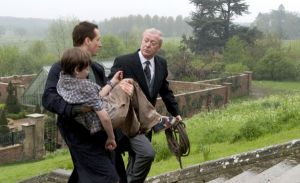
Start With The Hero As A Child Experiencing A Character Defining Moment
Swap the openings of "Begins" and "Amazing," and nothing much changes. Both have the young hero playing at home before experiencing a key moment of trauma. In Bruce Wayne's case, he falls down a well and is assaulted by bats. For Peter, the saddest game of hide and seek ever ends with a break-in at the Parker residence. The cause is Richard Parker's research into spiders (you can tell because there's a doodle of a spider on their chalk board, like real scientists make), which forces Ma and Pa to leave Peter with Aunt May and Uncle Ben before going into hiding…or something. It's all pretty vague. Anyway, each incident creates a key trait for the hero: Bruce becomes afraid of bats, while Peter's abandonment makes Richard's arachnid research a lasting link between the wayward father and son.
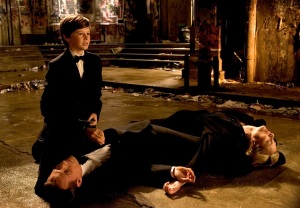
Make The Iconic Death The Result of the Hero's Flaw
Spider-Man's big motivation has always been the death of Uncle Ben, which he could have stopped in the 2003 movie, but didn't, because he felt like being a dick. The update has Peter's identity crisis, a theme the film beats you over the head with repeatedly, result in Ben's death. Peter spends too much time at the OsCorp research lab learning about his father, gets in a fight with Uncle Ben over his abandonment issues, and storms off into the night, with Ben following. A bottle of chocolate milk and an armed robber later, and we've got one dead uncle and a seriously guilt-ridden Spidey.
Which isn't all that far off from what happens to Thomas and Martha Wayne in Batman Begins. Fear is the theme de jour this time, and while Batman's parents still get gunned down outside a theatre the way they always have, it's Bruce's fear of the Cirque de Soliel guys looking too much like bats that causes the family to leave early, and exit out into the incredibly sketchy alley built into the fancy opera house. If Peter had had a handle on his orphan angst, and if Bruce had just (Bat)manned up, there would be no call to a life of vigilantism.
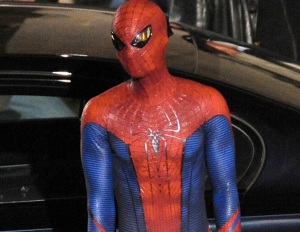
Develop The Costume Piecemeal
Both Spider-Man and Batman spend their first nights on patrol dressed in duds courtesy the local Salvation Army before really developing their signature looks. Spider-Man uses a heavily modified spandex speed skating suit, while Bruce Wayne assembles his armour from Wayne Tech inventions and items ordered through the company in bulk, so as to avoid suspicion. Apparently the police are less likely to suspect the guy with thousands of bat-shaped masks of being Batman than the guy who has none. Speaking of which…
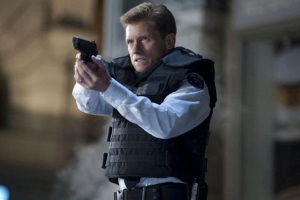
The Police Hate The Hero
Just to stack the deck against our protagonist before the big bad is revealed, Spider-Man and Batman end up on the wrong side of the law they're trying to enforce. In Batman's case, it's because many of Gotham's finest are in the pocket of organized crime, whereas Spider-Man manages to piss off every cop he encounters by showing how completely inept they are. There's always that one good cop on the force though, but more on him later.
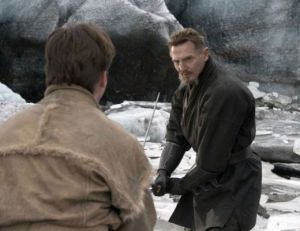
Promote A B-Tier Villain Into A Mentor/Father-Figure Related To The Parents' Death
The problem going into The Amazing Spider-Man was that all the classic villains had been used in the original trilogy; what remained were a bunch of one-note high-school basketball mascots like Rhino and Scorpion, of whom the Jekyll and Hyde-ing Lizard proved to be the least ridiculous. Meanwhile, pre-Batman Begins, pretty much no one would be able to tell you who Ra's al Ghul was, much less pronounce his name. The purpose of choosing newbies as heavies was two-fold: first, it distinguished the new films from the old ones, and second, the leeway allowed by having an unknown villain meant they could become a foe that helps better define the hero.
In each film, the hero is taught under the wing of an older mentor who knows of their tragic past, before said mentor reveals their true intentions. They're also responsible for the death of the hero's parents in some way. Ra's' League of Shadows plummeted Gotham into the recession that got the elder Wayne's killed during a mugging, while Kurt Conners, the Jekyll to Lizard's Hyde, worked with Peter's father before betraying him to the conspiracy that killed them…or something. Seriously, I cannot overstate how ill-formed the parent conspiracy plot is. The ultimate result is that the hero fighting the villain is as much about getting a little parental payback as it is stopping an attack on the city, which in both cases just so happens to involve...
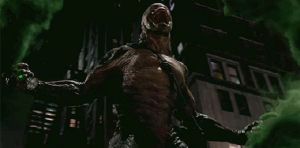
The Villain Attacks the City Using Chemicals
Blowing up a city with bombs? Too cliche. Holding the city ransom with a giant laser? Too tacky. Today's villain is all about dispersing clouds of chemical agents through downtown. And both Lizard and Ra's have enough flair to spice up the attack with some thematic consistency; in the latter's case, the green fog falling on Manhattan turns folks into human-animal hybrids, while misty white fear gas gives Gotham's citizens a deadly case of the heebie-jeebies. Our hero is immune to the stuff but what about his policeman sidekick? Well good thing…

The Love Interest Will Provide An Antidote For The Good Cop
The love interest, in addition to having worked with one of the villains at some point, and learning her super-suitors identity by film's end, will be the only one available to give the good cop the antidote he needs to help the hero save the day. Rachel Dawes inoculates Sgt. Gordon from the fear gas, allowing him to set up Batman's big train derailment. Gwen Stacey, on the other hand, gives her father, Captain Stacey, the counter-agent to Conners' mutagen, which he hands-off to Spider-Man before blowing a few chucks out of The Lizard. It's a dramatic finale, made all the more so because…

The Climax Is Staged At A Place of Familial Importance
Not only does Peter Parker have to defeat his father's old lab partner at the end of The Amazing Spider-Man, he does so on the roof of the OsCorp building, where Richard Parker did the research that got he and his wife killed, and developed the spider that gave Peter his superpowers. Batman meanwhile gets a double dose of daddy-issue resolution, by fighting Ra's not just on the train that Thomas Wayne built, but one that just so happens to be on a collision course with Wayne Tower. Congrats guys, you made your daddies proud by defending their homes away from home, which is all the more impressive because…

The Hero Is Seriously Injured Before The Final Battle
When running up against an 8-foot tall reptile or a martial arts master, chances are that the guy with his name in the title is going to win the final showdown. Since the hero's victory is an inevitability, the only thing to do is make it seem more difficult by forcing him to fight wounded. Batman suffers a nasty gash to the body, courtesy a flaming log, before confronting Ra's, while Spider-Man gets winged in the leg by a crack-shot cop who fires at ol' webhead, despite being given explicit orders not to shoot Spider-Man only two seconds prior. In both cases, the injury doesn't really factor into the final conflict, but it does heighten the stakes during the build-up.
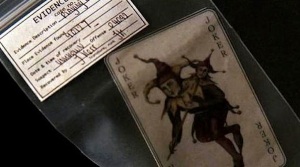
Promise A Bigger Bad Guy Next Time
Having successfully dusted off his wings and reintroduced the caped crusader to the world, while also having turned a no-name villain into a memorable on-screen adversary, Batman Begins ended with a hint that the most legendary villain of the rogues gallery, The Joker, was coming next. It was the perfect note to end the film on, having blown audiences away before teasing that "you ain't seen nothing yet."
And The Amazing Spider-Man tries to do the exact same thing. An after-credits sequence has the newly imprisoned Kurt Conners pleading with a nefarious unseen figure to leave Peter Parker alone, as he appears to be further up the chain in the Parker parent conspiracy. This points strongly to the next villain being…Norman Osborn? Mysterio? Hell it could be J. Jonah Jameson for all we know: most newspaper horoscopes are more accurate and informative than this bit of half-baked sequel-baiting.
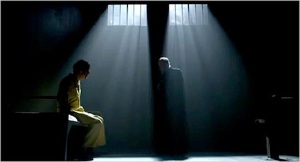
It's the last, and certainly most laughable, example of The Amazing Spider-Man trying to pull from Batman Begins' playbook, only to come up with a handful of empty webbing. What Marvel didn't seem to get is that the reason we compare Batman and Spider-Man is because they're distinctly different, and as such, deserve different movies. Imagine a dancing, emo-haired Batman, and tell me I'm wrong once you've stopped vomiting.



